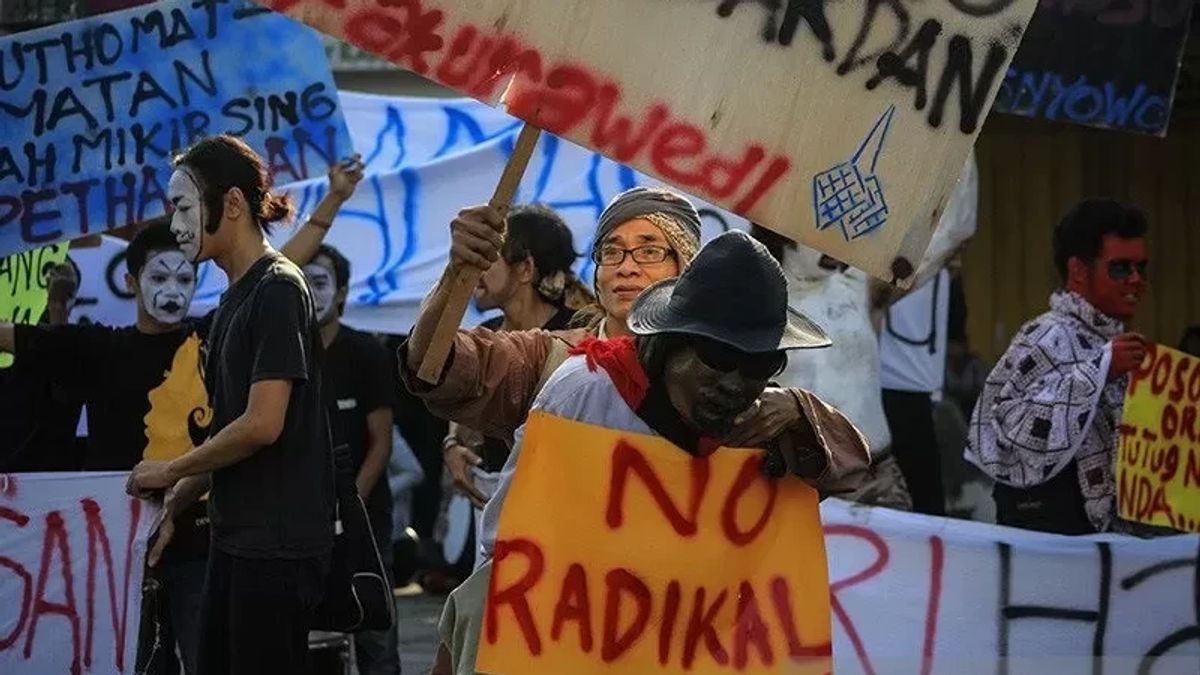JAKARTA - Child and Family Psychologist Maharani Ardi Putri said protecting children from the virus of intolerance, radicalism, and terrorism is actually part of saving the nation's future.
According to him, radicalization at an early age is deliberately carried out because children have a strong receptive power in accepting new things.
"Children are the next generation node who are easy targets for radical groups in carrying out regeneration," said Maharani Ardi Putri in a statement released by BNPT, Monday, July 25.
Maharani said that systematic prevention methods can involve all parties, including parents, teachers, as well as the government and ministries/agencies.
This, he continued, is an effective way to protect children from the virus of intolerance, radicalism, and terrorism.
He added, actually the value of tolerance and so on must be systematically instilled from childhood.
"Not only in the form of subjects, but must be taught in terms of behavior and feelings. So, our learning about nationalism, about tolerance, and harmony must be systematically arranged in stages from kindergarten to college," he said.
Maharani sees the need for a systematic approach in order to produce sustainability. Not only parents, but also schools.
"It will be more effective if the value investment is carried out collaboratively by all parties," he said, according to Antara.
This lecturer at the Faculty of Psychology, University of Pancasila argues that it is best for all parties to collaborate so that in the end children interact with the social world all the time. They are used to getting values of tolerance, harmony, and so on.
He said that the spirit of radicalism and fanaticism is most effective if it is built from an early age from childhood so that the values and teachings that are instilled will continue to be carried by children into adulthood.
It is also emphasized that the most effective is built from small because everything that lives with parents from childhood will continue to be carried along with their parents.
"It will be very easy to instill values in young children because they don't know anything else. Moreover, for example, the social environment is closed, so they can't learn from others," said Maharani.
He hopes that all parties must be aware that all parties must compete with these conditions or facts. In fact, parents should also receive socialization about inculcating the values of tolerance, harmony, and diversity as well as programs that re-awaken parents so that they can return to their roots, Indonesia.
He revealed, parents have a big role to teach it from childhood. However, not all parents have the same understanding and knowledge about it, sometimes even adults have been exposed first.
"So, actually maybe parents also need to get socialization," he said.
For that, he advised parents to be aware of the world and the surrounding environment, especially if it comes to a judgmental attitude (judging) on differences. So, it should not be taught to children because it is very dangerous, narrow the way of thinking and it is feared that it will become the seed of radicalism and fanaticism.
"So, before talking about how to teach it to children at home, we must start thinking about how we maintain our views and perspectives on other humans because parents' thoughts will become the basis for thinking for their children," he said.
The English, Chinese, Japanese, Arabic, and French versions are automatically generated by the AI. So there may still be inaccuracies in translating, please always see Indonesian as our main language. (system supported by DigitalSiber.id)













